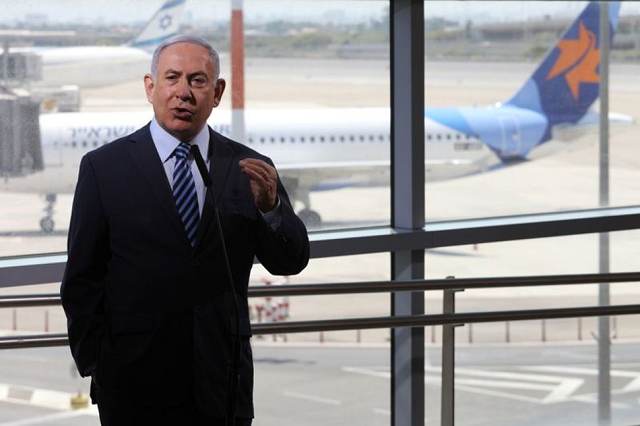Netanyahu says Israel preparing for direct flights to UAE over Saudi Arabia
At Ben-Gurion airport, Israeli PM says he sees 'tremendous scope for bilateral tourism' with UAE

Prime Minister Benjamin Netanyahu said on Monday that Israel is preparing for direct flights, over Saudi Arabia, to the United Arab Emirates as part of its normalisation deal with the UAE.
Israel and the UAE announced on Thursday that they will normalise diplomatic relations under a US-sponsored deal whose implementation could reshape Middle East politics from the Palestinian issue to the fight against Iran.
The UAE would only be third Arab state in more than 70 years to establish relations with Israel.
Netanyahu, briefed at Tel Aviv’s Ben-Gurion airport on plans for expanding flight activity curtailed by the coronavirus pandemic, gave no time frame for the opening of an air link with the Gulf Arab country.
“We are currently working on enabling direct flights, over Saudi Arabia, between Tel Aviv and Dubai and Abu Dhabi,” Netanyahu told reporters, estimating flight time at “about three hours, just like to Rome”.
Saudi Arabia does not recognise Israel and its air space is closed to Israeli airliners. But in what was seen in Israel as a harbinger of warmer relations with Riyadh, Air India was allowed in 2018 to begin flying over Saudi territory on its New Delhi-Tel Aviv route.
At Ben-Gurion airport, Netanyahu said he saw “tremendous scope for bilateral tourism and gigantic scope for investment” with the UAE.
A delegation from Israel is expected to travel to the UAE within weeks to work out the modalities of normalised relations, but any swift opening of a commercial air route could be complicated by coronavirus restrictions.
On Sunday, the UAE opened telephone lines to Israel, a link inaugurated in a conversation between the two countries’ foreign ministers.





1724912122-0/Untitled-design-(1)1724912122-0-208x130.webp)













COMMENTS
Comments are moderated and generally will be posted if they are on-topic and not abusive.
For more information, please see our Comments FAQ